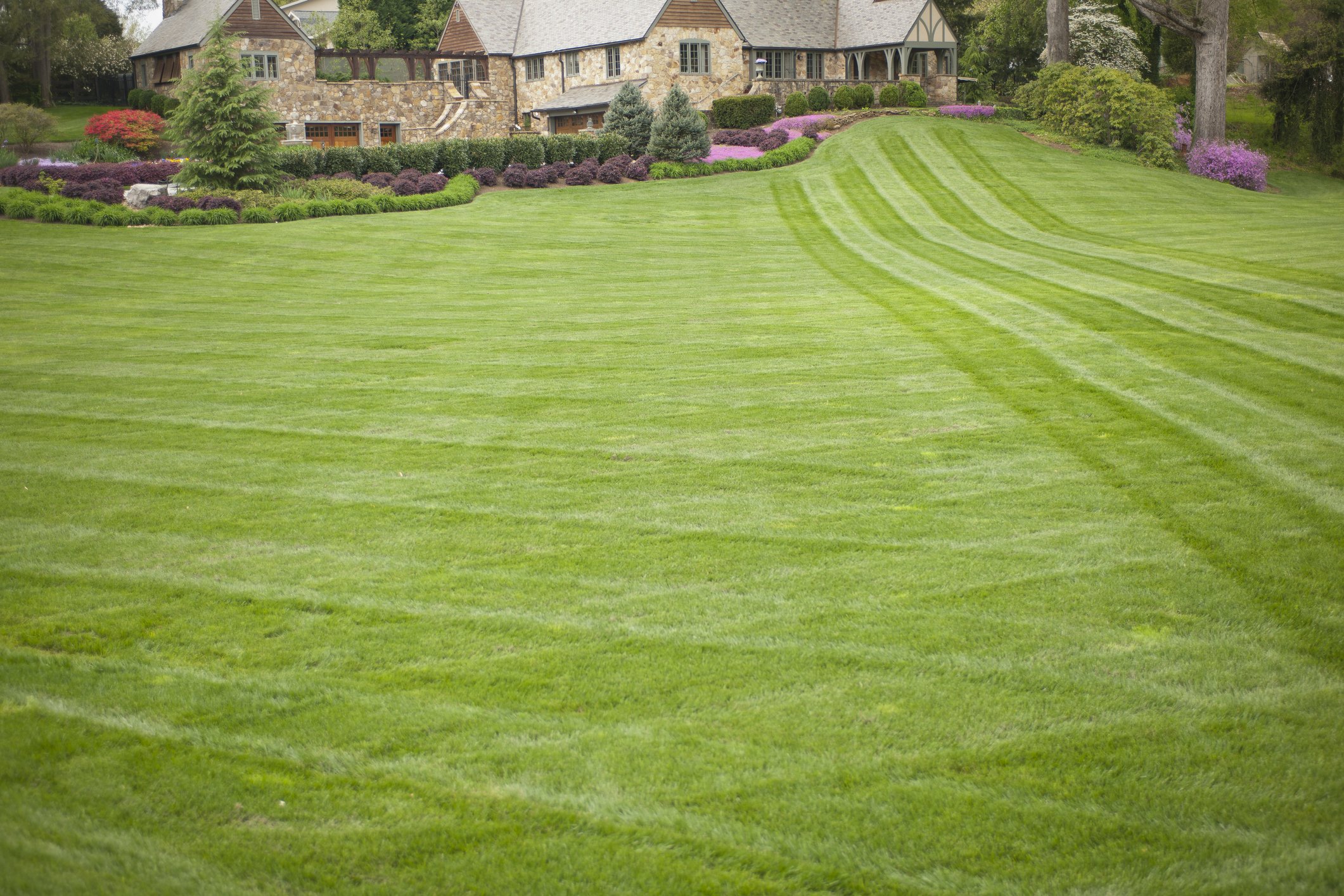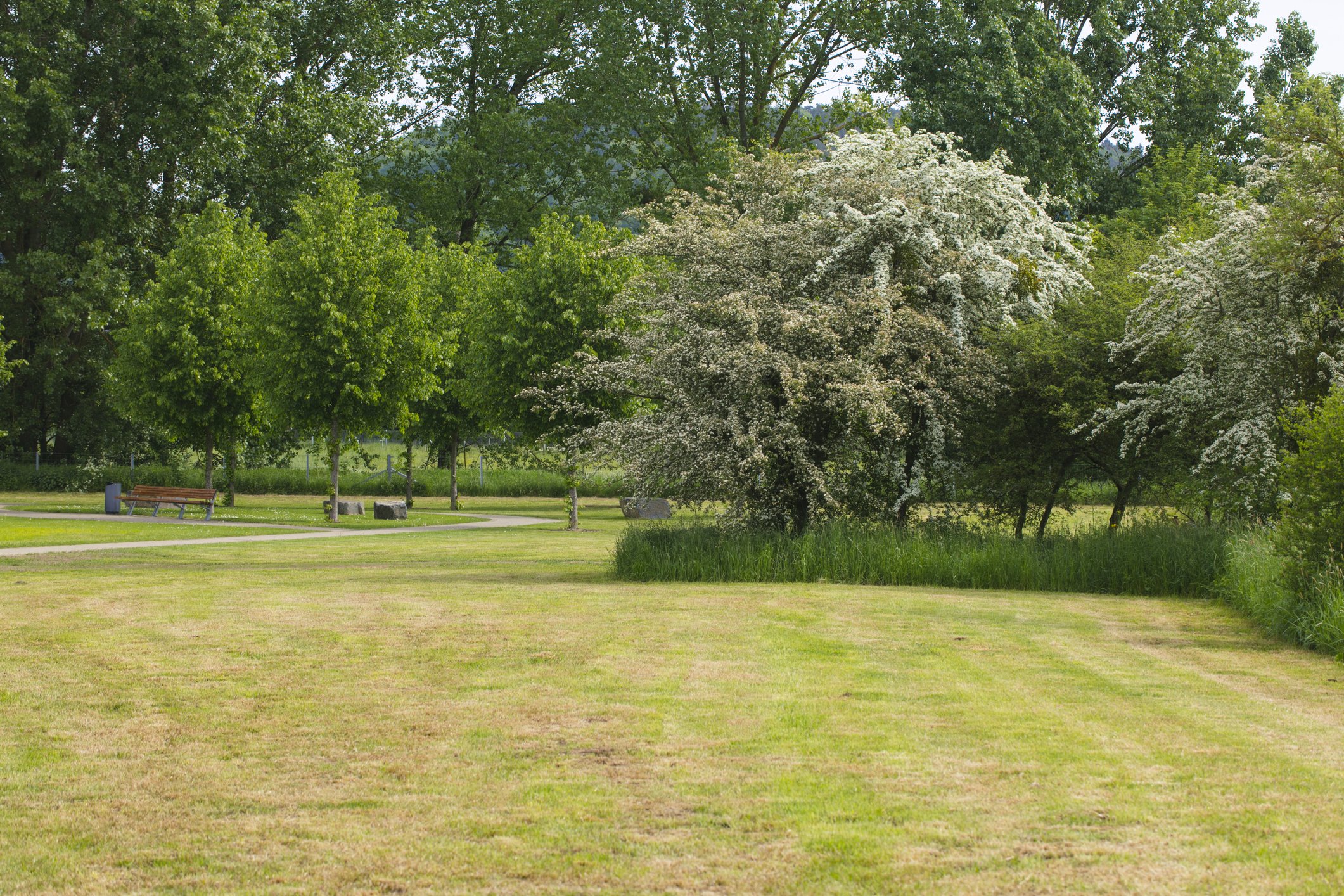What Every Estate Manager Should Know About Managing Landscapes
Ever feel nervous about managing the landscape in your care? Here are our 4 best tips to keep your estate's landscape in top shape (and keep your job).
A happy, healthy lawn
As part of our estate management systems—in particular the How to Manage a Mansion™ System—we carefully collect household data, photos, and information about the mechanical equipment of the property. This is a critical step in gaining overall knowledge about all the intricacies of the property and how it functions. Usually, we only have a short time frame to make miracles happen, so we hit the ground running as soon as we arrived at the estate.
At one of our most recent visits, we noticed the lawn didn’t look its best. It turns out the landscape company didn’t adjust the watering time during the 4th of July weekend heatwave; as a result, the lawn suffered greatly.
While this can happen to even the best landscape maintenance crew, we started to notice additional issues. Plants were dead and left to decompose, the citrus trees were infested with leaf miner, and the lawn felt extremely hard. Their large trees were struggling with fragile foliage near the crown and outer branches, and the gardenia leaves were yellowish instead of dark glossy green.
We also noticed that there were slow-release fertilizer pellets in drip irrigation shrub beds. This was an instant red flag to me because slow-release fertilizers need soil and water to release chemicals. This means that unless it rains heavily, this type of fertilizer won’t be able to dissolve into the soil – rendering the fertilizer useless.
We had to investigate further, even though a landscape assessment was not included in our contract.
Simple garden maintenance is something often overlooked, especially when the home needs full-time attention. Here are the top 4 items to check if you are responsible for an estate landscape:
A neglected lawn
1. GENERAL TREE AND PLANT HEALTH
Get an annual arborist report.
Call a certified arborist and schedule a site visit. As an independent contractor, they will provide an objective report of your tree and plant’s general health, current maintenance, pest, disease, or fertility issues.
Is your lawn lush or lackluster?
If the lawn doesn’t look flawless, start asking questions. Take no excuses! If your maintenance company or gardener cannot provide quality lawn care, start looking for another maintenance provider.
2. FERTILIZATION, PRUNING, AND PEST MANAGEMENT
Soil nutrition is key!
Unless your property has only native plants, you’ll need to return nutrients back into the soil with compost and other soil amendments – even if your property is 100% organic. Get a soil test and schedule fertilization and mulching regularly to stay up-to-date with this. Be mindful that many maintenance crews arbitrarily apply fertilizer without knowing if it’s needed, and often, they don’t understand soil acidity and which plants need acid or alkaline soils.
Pair your soil test with your arborist’s report, so your maintenance crew will know exactly what is expected.
Timely trimming.
Scheduling your pruning is also important. Get to know which trees on your property need to be pruned in the winter months and when to prune the blooming trees (typically right after they bloom).
Pesky pest management.
Many nursery-grown landscape trees and shrubs have disease and pest management issues. Do you know your plant issues and what to look for to identify a plant in distress? Educating yourself on the warning signs will be crucial to your success.
3. IRRIGATION
Assess and inspect.
Remember that nothing lasts forever. It’s essential to check up on your system regularly and look for issues zone by zone. If you don’t have time to manage this, then require that the maintenance provider documents what adjustments were made, whether a leak test was completed on the main line, and whether there is any overspray at the curb. Also, keep an eye on your water bill each month for any suspiciously high usage.
These details matter.
Consider whether to install a rain or freeze sensor... or even a fertigator. Does the main line have a master valve? In addition to an irrigation timing app, do you have an irrigation zone map and timing chart? On larger systems (more than 20 zones), it’s difficult to properly manage irrigation run times – especially the dry-out time each week right before mowing.
4. SERVICE PROVIDER’S INFORMATION
The devil is in the details, and it is critical that you understand the fine print of your service provider’s contract. Things to look out for:
Content: What does your landscape maintenance contract include and exclude? What is their contract cancellation policy?
Fees: The cost of green waste dump, how many fertilizations per year, and what about mulch, seasonal color, and dead plant replacements?
Policies: What are their worker’s compensation policy and state license limitations? Are they insured and trained to prune above 12 feet? Are they licensed to apply fertilizers and pest control?
Spray Irrigation
Managing an estate landscape is a massive undertaking on top of all of your other responsibilities. Unless you educate yourself about landscape basics, you’ll be at the mercy of your maintenance company to provide this knowledge and care. Even with their best intentions, their work is only as good as their current staff’s knowledge.
It can take years before plant damage, poor irrigation practices, and inadequate pest management issues surface. And, when it’s done, the results can be detrimental to your plants and the aesthetics of your property.
Hiring the most qualified contractors available in your area and obtaining independent inspections to monitor their work is the best way to ensure top-quality work.
Secondly, asking and understanding these aspects of your estate’s landscape maintenance will help to alleviate costly surprises and specimen plant loss. Even if you don’t know much about plant care, you can educate yourself about these details to oversee the work and to help maintain a world-class estate.
Most importantly, by creating awareness and staying on top of the basic needs of your garden, you can be confident that it will flourish, and so will you.
If you’d like to see how we would organize absolutely everything online related to the landscape, we’ll take you behind the scenes:




